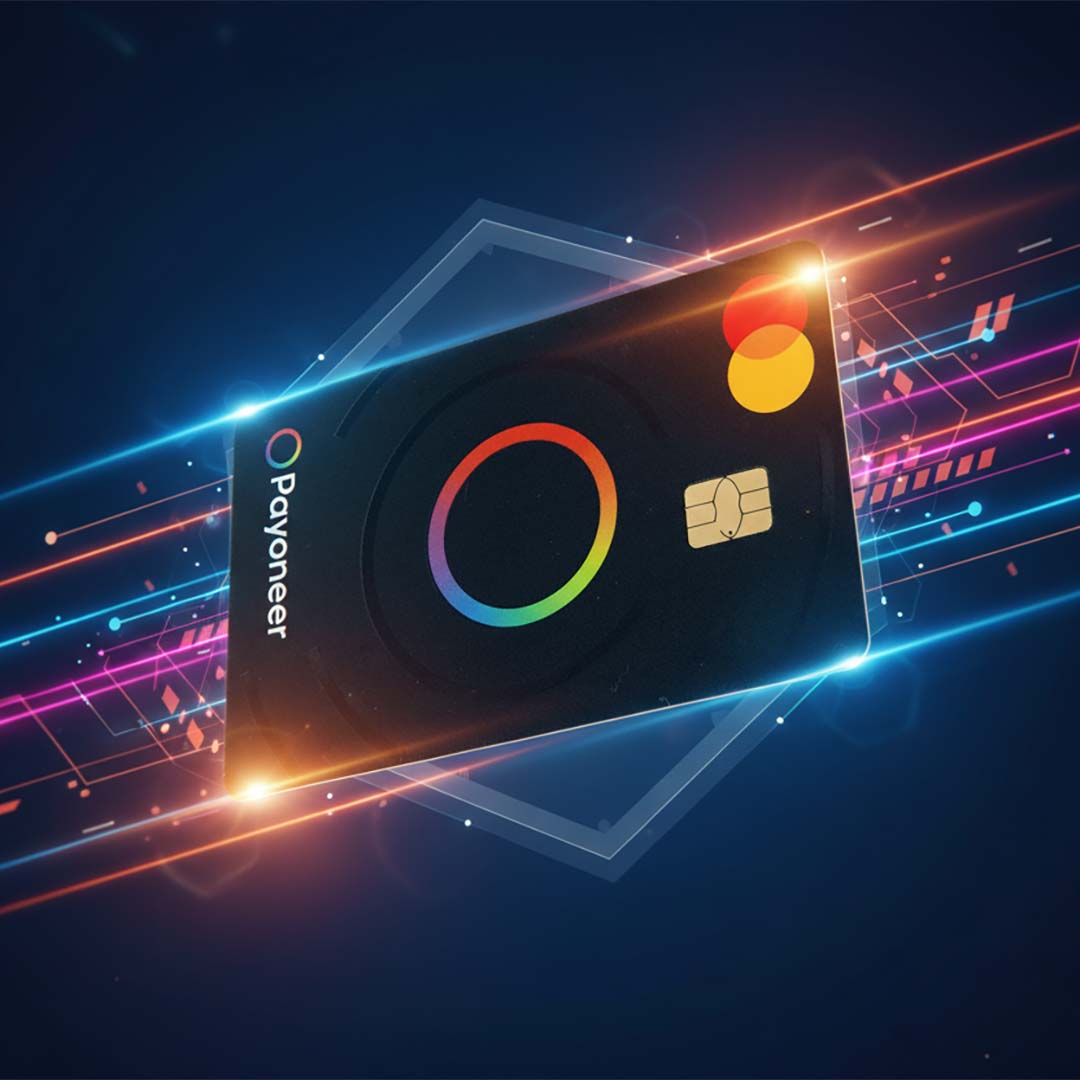Smart Payments | Guide for freelancers, creatives & e-commerce
With Vendeur Pro featured solutions, freelancers, creatives, and e-commerce businesses can receive their payments faster, avoid unexpected holds, and manage their cashflow with ease. Say goodbye to delays, hidden fees, and frustrating account freezes, and enjoy getting paid reliably so you can focus on growing your business.
The gap between “invoice sent” and “money in hand”
You’ve finished the job — the render, the shoot, the campaign. You send the invoice and you wait. Days pass. Then you get an email: your account is limited, we need more documents. Sound familiar? For many freelancers and small studios, this is the invisible tax of remote work: time, energy, and opportunity lost to payment friction.
This isn’t hypothetical. It’s routine: accounts frozen for “risk review”, requests for paperwork you don’t have on hand, and support teams that answer with templated responses and long wait times. The impact is more than frustrating — it’s real cashflow damage. While you chase documents, clients wait, suppliers need paying, and chances to scale slip away.
Typical pain points
PayPal or a marketplace holds funds and asks for documents that take days to gather.Hidden conversion margins quietly shave 2–5% from each international payment.Local banking rails in some countries are slow, expensive, or simply incompatible with global platforms.You are not alone — you are simply part of the global creative economy learning how to protect its cash.
Why popular platforms sometimes make things worse
Platforms like PayPal became popular because they’re convenient. But scale brings automated policing: automated holds, automatic risk flags, and an overloaded support system. A single large sale can trigger a “security review” that freezes your balance, sometimes for weeks. The official reasons sound reasonable — fraud prevention — but the practical result is you, stuck.
Support responses are often templated and slow. You’re asked for proof of shipment, supplier invoices, bank statements — sometimes documents your client never generated. Meanwhile, your store or freelance business is expected to run on hope.
A better approach: add a reliable lane for your payments
Leaving PayPal or your bank isn’t mandatory. What works is adding a second, more stable lane: a regulated global payments partner that provides local receiving accounts (USD/EUR/GBP), transparent fees, multi-currency wallets and an optional prepaid card to spend or withdraw without exposing your primary bank account.
That second lane reduces risk. It speeds payouts. It makes conversion visible. Most importantly — it keeps your business running while you sleep.
Real case: a seller reported $12,000 frozen during a “review”, dealing a blow to payroll and supplier payments until the hold was released weeks later.
What a real "smart payments" setup looks like
Think of a platform that issues local receiving details so clients pay like they’re doing a domestic transfer. Funds land faster, conversion is transparent, and you can either hold balances or convert when the rate is better.
- Local receiving accounts: clients pay locally (ACH, SEPA, local GBP), you receive globally.
- Multi-currency wallets: hold and convert on your schedule.
- Prepaid card: spend directly or withdraw cash at ATMs without moving money into a local bank first.
- Single ledger: one place to see affiliate revenue, freelance payments, marketplace payouts.
Quick practical benefit:
Less paperwork. Fewer surprise holds. Fewer nights refreshing the dashboard. More time to ship the next project.
Why credibility matters: public listing & scale
Trust matters when money flows across borders. One reason professionals pick certain global payment partners is simple: public oversight. Being listed on a major exchange (example ticker: PAYO) means routine reporting, investor scrutiny, and stronger compliance posture. That doesn’t make everything flawless, but it raises the bar compared to anonymous wallets or tiny startups.
Public listing forces a company to be transparent: audited numbers, earnings calls, and regulatory disclosures. That stability matters for your livelihood.
Companies with real scale tend to invest in integrations (marketplaces, affiliate platforms), compliance teams, and reliability — all things that reduce the chance your funds disappear into a “review” black hole.
The prepaid card — small, but transformative
For many freelancers, the moment they order a prepaid Mastercard is the moment payments stop being a daily worry. Instead of routing every payment through a fragile local bank, you top the card from your balance and spend directly: ad platforms, SaaS tools, subscriptions, or coffee between shoots.
- Buy online without exposing your main bank account.
- Withdraw local cash at ATMs worldwide.
- Spend in the currency you were paid in, reducing double conversion fees.
- No credit check for prepaid models — quicker issuance.

Fees explained plainly
There are three categories to watch: account inactivity / maintenance fees, card fees (annual or issuance), and conversion/ATM fees. Providers publish fee schedules — read them. Key rule: if you have recurring income, fees become a small predictable cost. If your income is very low or one-off, fees can feel heavier.
| Fee type | What to expect |
|---|---|
| Inactivity / annual fee | Charged if account has negligible incoming volume — thresholds vary; often around $25–35/year. |
| Card fee | Physical card sometimes carries a yearly or issuance fee — check waiver rules for active accounts. |
| ATM withdrawal | Flat ATM fee + possible network conversion margin. |
| Currency conversion | Transparent percentage above mid-market rate — convert when you want for better control. |
Tip: a small regular inflow (even a modest retainer) often prevents inactivity charges — simple trick many creators use.
Short note on alternatives (Neteller, Skrill, Paysera, crypto)
There are other players. Some excel for gaming/betting audiences (Neteller, Skrill historically), some serve specific regions (Paysera in parts of Europe), and crypto rails offer alternatives for early adopters. These options are useful in particular contexts — but for mainstream freelance, affiliate and marketplace revenue, a regulated global payments platform with business integrations is usually the most practical choice.
Quick comparison:
- Neteller / Skrill — good for gambling/FX-heavy flows, not ideal for mainstream business integrations.
- Paysera — cost-effective in some Eastern European corridors.
- Crypto — fast and borderless but volatile and sometimes complex for accounting.
What this service will not support (why this matters)
Compliance matters. High-risk verticals (online gambling, some adult content, certain unregulated exchanges) are often restricted or require special onboarding. Trying to force high-risk flows through a general freelance payments account can result in closures or long reviews. If you operate in those niches, pick a provider that explicitly supports them — expect heavier KYC and higher fees.
In short: clear rules protect stability. If you want reliable payouts for typical freelance and affiliate work, stay within the supported categories.
How to connect this to your affiliate & freelance income (step-by-step)
- Open an account on the global payments platform and complete KYC (ID, address).
- Grab the local receiving details (USD ACH, EUR IBAN, GBP account).
- In your affiliate dashboards (Binance, KuCoin, Teachable, etc.), choose “bank transfer / global payouts” and paste the provided details.
- Test with a small payment, confirm schedule and currency support.
- Optionally order the prepaid card and top it from your balance for spending.
Checklist: confirm supported payout currencies per affiliate, check inactivity thresholds, and keep identity docs ready to speed up any verification.
A short, honest word
This guide is here to save you time and protect your cash. If you get frequent international payments, affiliate commissions, or sell digital goods to global clients, adding a regulated multi-currency payments partner plus a prepaid card is likely to reduce stress and give you practical control.
“Keep creating. Let payments be something you check — not something you panic about.”

